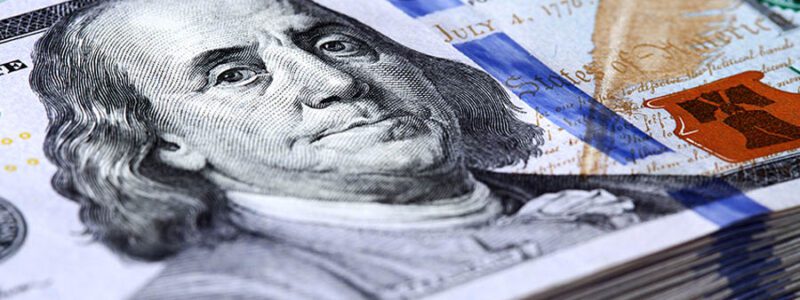
The U.S. dollar is getting stronger against the euro and the pound sterling in trading on Friday, getting cheaper against the yen.
The ICE-calculated index showing the dollar’s performance against six currencies (euro, Swiss franc, yen, Canadian dollar, pound sterling and Swedish krona) gained 0.11%, while the broader WSJ Dollar Index gained 0.07%.
The euro/dollar pair was trading at $1.0871 as of 8:20 a.m., up from $1.0892 at the close of the previous session.
The pound was down to $1.2380 from $1.2410 the day before.
Statistical data published on Thursday showed that the U.S. economy remains resilient despite a significant tightening of monetary policy by the Federal Reserve (Fed).
According to preliminary data from the U.S. Commerce Department, the nation’s GDP rose 2.9% on an annualized basis in the fourth quarter after climbing 3.2% in the previous quarter. The consensus analyst forecast cited by Trading Economics suggested economic growth weakened to 2.6%.
“The Commerce Department report suggests that the U.S. economy remains relatively strong despite aggressive measures by the Federal Reserve trying to slow inflation,” notes BMO Family Office chief investment officer Carol Schleif, quoted by Market Watch.
A less-than-expected slowdown in U.S. GDP growth last quarter somewhat dampened investor optimism that signals of deterioration in the U.S. economy would prompt the Federal Reserve (Fed) to further slow the pace of base interest rate increases.
The first Federal Open Market Committee (FOMC) meeting of the year will be held next week. The U.S. Central Bank raised the rate by 50 basis points (bps) in December after increasing it by 75 bps at the end of the previous four meetings.
On Friday, the market will follow the Commerce Department’s report on Americans’ income and spending for December, which includes data on consumer price movements.
According to a consensus forecast by experts quoted by Trading Economics, the PCE Core Consumer Price Index, which excludes food and energy costs, rose 0.3% in December after rising 0.2% a month earlier.
The dollar/yen dropped to 129.91 yen against 130.22 yen in previous trading.
The International Monetary Fund (IMF) recommended the Bank of Japan to consider taking measures to increase the flexibility of long-term government bond yields, noting that rising inflation risks in the country require additional room for maneuver in monetary policy.
In particular, the Japanese Central Bank could increase the target yield on 10-year government bonds, expand the range of fluctuations in the interest rates of these securities, as well as return to the quantitative target in the bond buyback program and switch to the purchase of more “short” securities, says the IMF report, published Thursday.